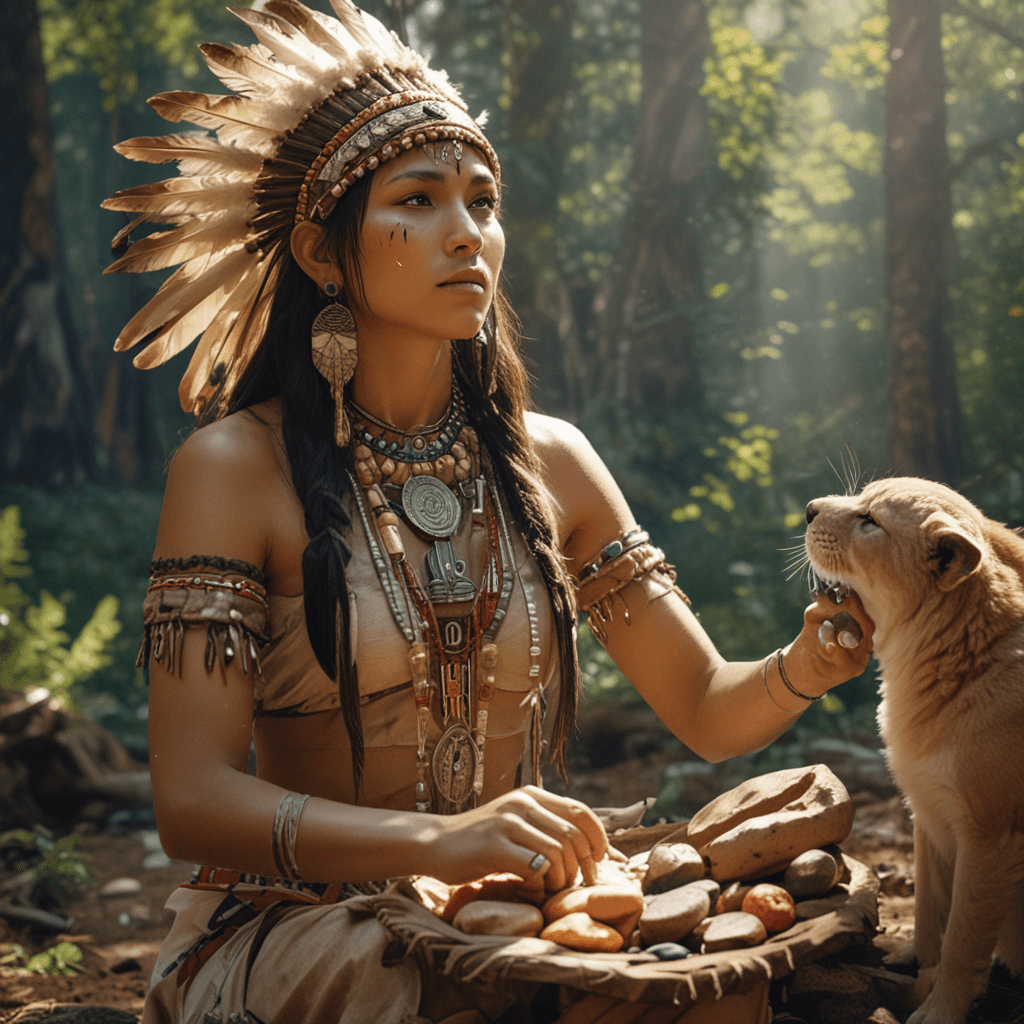The Cosmic Legacy: How Creation Myths Influence Our Future
I. Introduction
Creation myths are foundational stories that explain the origins of the universe, the earth, and humanity. These narratives are deeply embedded in the cultural fabric of societies and serve to articulate the beliefs, values, and identities of those who tell them. Understanding creation myths within their cultural context is vital as they not only reflect the worldviews of ancient peoples but also influence contemporary thought and future directions.
This article explores how creation myths shape our understanding of identity, morality, and our relationship with the environment, providing a framework for addressing modern challenges and envisioning a sustainable future.
II. The Nature of Creation Myths
Creation myths exist in myriad forms across cultures, each offering unique insights into the human experience. From the Genesis creation narrative in Judeo-Christian tradition to the Hindu story of Brahma creating the world from the cosmic ocean, these myths provide a sense of belonging and understanding to their adherents.
Common themes in these stories include:
- The emergence of chaos into order
- The role of divine beings or forces
- The creation of humanity and its purpose
Psychologically, creation myths fulfill a need for explanation and provide a sense of security in an uncertain world. Sociologically, they reinforce group identity and shared values, facilitating community cohesion.
III. Historical Perspectives on Creation Myths
Throughout history, ancient civilizations such as the Sumerians, Egyptians, and Indigenous peoples of the Americas have crafted rich creation narratives. These myths were essential for understanding the world and one’s place within it.
Creation myths played a critical role in shaping early societies by:
- Establishing social orders and hierarchies
- Providing moral guidelines
- Explaining natural phenomena
As societies evolved, the transition from oral traditions to written texts allowed these myths to be preserved, adapted, and disseminated across generations, influencing later cultures and belief systems.
IV. Creation Myths and Human Identity
Creation myths are pivotal in shaping cultural identities. They offer a narrative that connects individuals to their ancestors, their land, and their community. These stories provide a sense of continuity and belonging, essential for social cohesion.
Moreover, creation myths impact moral and ethical frameworks. They often delineate right from wrong and emphasize the importance of virtues such as respect, stewardship, and community. Through these narratives, societies articulate their values and collective aspirations.
Furthermore, creation myths foster community cohesion by:
- Providing shared narratives that unite diverse groups
- Encouraging rituals and traditions rooted in these myths
- Creating a common understanding of purpose and destiny
V. Scientific Discourse vs. Mythological Narratives
The relationship between scientific explanations and creation myths is often viewed as contentious. While science relies on empirical evidence and rational inquiry, creation myths are rooted in faith and cultural tradition.
However, these two realms need not be in opposition. Many modern societies find ways to coexist with both scientific and mythological perspectives. Myths can serve as complementary narratives that address existential questions that science may not fully answer.
Some ways in which myths can enhance scientific understanding include:
- Providing ethical frameworks for scientific endeavors
- Inspiring scientific inquiry through mythological themes
- Encouraging a holistic view of human existence
VI. Environmental Stewardship and Creation Myths
Many creation myths emphasize the interconnectedness of humans and nature, portraying the earth as a living entity deserving of respect and care. These narratives often contain lessons about stewardship and sustainability.
For example, Indigenous creation myths frequently highlight the importance of living in harmony with the environment, reflecting a deep understanding of ecological balance.
Lessons from these myths can inform modern environmental practices by:
- Encouraging sustainable resource management
- Promoting respect for natural cycles
- Inspiring community-led conservation efforts
Case studies from cultures with sustainable practices, such as the Maori of New Zealand, illustrate how creation narratives can guide environmental stewardship.
VII. Creation Myths in Contemporary Media and Pop Culture
Creation myths continue to resonate in contemporary media, literature, film, and art. Modern adaptations and reinterpretations of these ancient stories allow them to reach new audiences and remain relevant.
Examples of creation myths in popular culture include:
- Movies that explore themes of creation and destruction, such as “Avatar” and “Interstellar.”
- Literature that weaves mythological elements into contemporary narratives, such as Neil Gaiman’s works.
- Art installations that reinterpret mythological themes through modern lenses.
These representations play a crucial role in shaping contemporary narratives and understanding, connecting past and present in meaningful ways.
VIII. The Future of Creation Myths in a Globalized World
As the world becomes increasingly globalized, creation myths are evolving within multicultural societies. New narratives are emerging that respond to contemporary issues such as climate change, technological advancement, and social justice.
Potential new creation narratives may include:
- Stories that highlight the importance of global cooperation for a sustainable future
- Narratives that address the ethical implications of technology and artificial intelligence
- Myths that reflect diverse cultural perspectives on unity and diversity
The impact of technology also plays a significant role in the dissemination and transformation of these myths, allowing for rapid sharing and reinterpretation across cultures.
IX. Philosophical Reflections on Creation Myths
Creation myths raise profound existential questions about human purpose and existence. They prompt inquiries into the nature of life, the universe, and our role within it.
Through these myths, we can explore themes such as:
- The meaning of existence and identity
- The relationship between humanity and the cosmos
- What it means to be human in a rapidly changing world
Future philosophical inquiries inspired by ancient myths can foster deeper understanding and engagement with the challenges of modern existence.
X. Conclusion
Creation myths are not just relics of the past; they remain a vital part of our cultural heritage, influencing our present and shaping our future. From forming identities to guiding ethical frameworks and promoting environmental stewardship, these narratives hold timeless wisdom.
As we navigate the complexities of modern life, embracing the insights of creation myths can provide us with the tools to forge a sustainable future. By valuing these narratives, we can ensure they continue to inform our understanding of ourselves and the world around us.
Let us honor the cosmic legacy of creation myths and integrate their wisdom into our quest for a harmonious existence on this planet.



